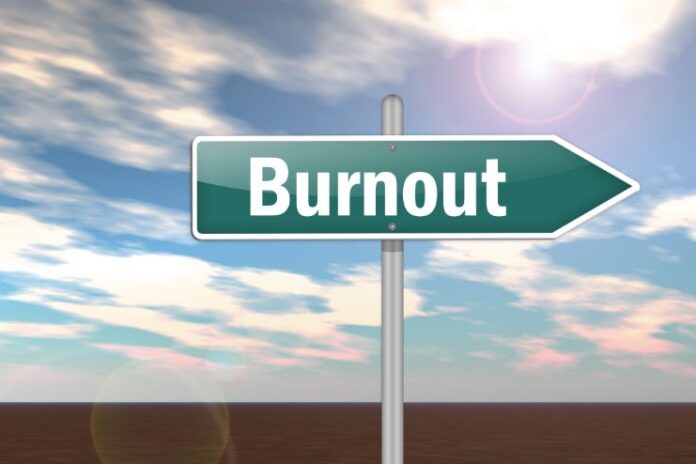Are You Feeling Drained, No Matter How Much You Sleep?
Burnout is more than just feeling tired—it’s a state of ongoing mental, emotional, and physical exhaustion that results from prolonged stress. It can sneak up on you, slowly taking a toll on your well-being in ways that are often hard to notice until it’s too late. People from all walks of life can fall victim to burnout, and its effects can be long-lasting.
As this issue continues to grow, it’s essential to understand how to prevent and recover from burnout. In this article, we’ll explore what burnout is, why it’s becoming more common, and how it impacts your overall health.
Read More: Burnout Symptoms You’re Ignoring (And How to Recover Quickly)
Understanding Burnout

What is Burnout?
Burnout develops as a result of persistent physical and emotional exhaustion. It has three core components:
- Emotional Exhaustion: A constant feeling of being drained, with depleted energy reserves.
- Cynicism: A growing sense of detachment and negativity, often directed toward work.
- Reduced Effectiveness: A noticeable decline in both personal and professional accomplishments.
What Causes Burnout?
One of the biggest causes of burnout is the constant pressure people face in today’s world. Several factors contribute to this, including:
- Work-related Stress: We face heavy workloads, unrealistic expectations, and long hours regularly.
- Too Many Responsibilities: Our busy lives often demand all our time as we juggle multiple roles all the time. With no sufficient time to recharge, we ultimately burn out.
- Work-life Imbalance: Struggling to maintain personal time while keeping up with professional demands.
- Lack of Support: Feeling isolated or unsupported in work and personal life. This might not just lead to burnout but other mental health problems as well.
These challenges increase the risk of burnout across different areas of life, making it essential to identify and address them in time.
Read More: Emotional Burnout vs. Depression: How to Tell the Difference
Recognizing Early Warning Signs of Burnout
Spotting burnout early is necessary to prevent further complications. Here are a few warning signs you must look for:
- You feel constantly exhausted, even after ample rest.
- You are unable to perform well and have difficulty staying focused.
- You start feeling frustrated, and a sense of delusion or detachment creeps in.
By recognizing these warning signs, we can take steps to restore balance in our personal and professional lives. Addressing burnout early helps reduce its negative effects, making us lead a healthier, more sustainable lifestyle.
Effective Burnout Prevention Strategies
To protect ourselves from burnout, it’s essential to take proactive measures to manage stress and balance our lives. Let’s learn more about a few important prevention strategies that will help us develop strength and prevent exhaustion.
1. Establishing Boundaries
One of the most effective ways to avoid burning out is by establishing clear boundaries between work and personal life. This balance serves as a powerful shield against stress and fatigue. To maintain this balance, you can take several strategic steps:
- Prioritize Tasks: Try to focus on the crucial things first. This helps in the easy management of workloads while preventing unnecessary stress.
- Share Tasks: If the tasks seem huge and time-consuming, do not shy away from delegating them. This ensures an equal divide, where no single person carries all the burden.
- Learn to Say No: Learn the art of saying no to commitments that overburden you. By saying no to such situations, you are saying yes to better mental health. We know this might be difficult, but try it to have better mental health.
2. Practicing Self-Care
To stay well while achieving personal and professional objectives, we must prioritize various aspects of self-care. The most important self-care practices are:
- Getting Adequate Sleep: Sticking to a regular sleep routine promotes brain functioning, builds emotional resilience, and maintains energy levels.
- Exercise Regularly: Exercise reduces stress and fatigue by releasing endorphins, which enhance mood and general health.
- Healthy Eating: Eating a well-balanced diet high in vitamins and nutrients promotes both physical and mental strength.
- Handling Stress: Practice deep breathing, meditation, and relaxation techniques that help soothe the mind and sharpen concentration.
In addition to the basics, adding fun things to the routine improves self-care. Participating in hobbies generates creativity, stress relief, and self-expression and offers a wholesome counterbalance to a hectic life.
3. Seeking Support

Family and friends, along with professional guidance from counselors, can help reduce stress and encourage resilience. Drawing emotional support from trusted sources can alleviate the burden of daily concerns and bring relief during difficult moments. Major strategies for seeking support are:
- Sharing Feelings With People You Love: Speaking with close friends and relatives helps cope with mental exhaustion. When you open up and express your concerns, it not only combats burnout but also strengthens your relationships.
- Professional Counseling: Counselors offer objective advice, enabling us to identify causes of burnout and implement practical coping mechanisms. Therapy provides a structured, confidential setting to work through emotions and devise tailored stress management plans.
- Support Groups: Sharing experiences with others who are going through similar issues creates empathy and mutual understanding. Support groups offer a platform for sharing knowledge, coping strategies, and encouragement.
Read More: Emotional Numbness – Why You Feel Nothing and How to Regain Joy
Burnout Recovery Strategies

Let’s discuss key recovery strategies after burnout, emphasizing the importance of a patient and systematic recovery to get back to wellness.
1. Acknowledge and Feel Your Emotions
Recognizing and accepting burnout without judgment is a vital first step toward recovery. It’s important to allow yourself to feel and acknowledge your emotions, as this creates a foundation of self-compassion. Once you’ve accepted that burnout is present, you can take a clear mental inventory of your state and begin the healing process with greater awareness and intention.
2. Seek Professional Help
Recovering from burnout requires a thoughtful, structured approach. It’s essential to prioritize your health, which may involve taking time off work to rest and recharge. Seeking professional support, such as therapy or counseling, is a proactive step toward addressing the root causes of burnout. These services offer personalized coping strategies that can support a deeper and more effective recovery process.
3. Gradually Start with Work Responsibilities:
Returning to work after experiencing burnout should be done with care and a gradual approach. It’s helpful to start with fewer hours or modify your responsibilities to ease back into your routine. By taking small steps, you can rebuild your resilience and reduce the risk of burnout reoccurring.
4. Focus on Self-Compassion and Healing:
Concentrating on self-compassion during the healing process is vital. Be nice to yourself and recognize that healing is a process rather than a quick fix.
Self-reflection plays a crucial role in identifying personal boundaries and triggers, empowering individuals to make mindful choices that can prevent future burnout. Setting realistic goals while healing is key to maintaining a balanced and sustainable approach to work and life. Incorporating mindfulness practices can also help calm the mind and aid recovery.
Self-care and healing involve:
- Creating a clear recovery plan.
- Valuing the importance of expressing emotions.
- Seeking professional support.
- Gradually and compassionately re-engaging with work responsibilities.
By embracing self-compassion, self-reflection, and realistic expectations, individuals can rebuild resilience and foster long-term well-being as they navigate the path to recovery.
Conclusion

In conclusion, our study on burnout highlights the critical importance of recognizing, addressing, and recovering from burnout for overall well-being.To build resilience and overcome challenges, we encourage you to prioritize self-care, set healthy boundaries, and seek support when needed. The journey toward a healthier and more sustainable lifestyle starts with cultivating self-awareness, resilience, and a commitment to well-being.
-
Mar 2024Written by Ankita
-
Apr 2025Edited by Vaishnavi
References
- https://www.cnbc.com/2021/01/11/types-of-burnout-and-signs-and-symptoms-emily-ballesteros-coach-tips.html
- https://cpa.ca/psychology-works-fact-sheet-workplace-burnout/
- https://www.sciencedirect.com/topics/nursing-and-health-professions/emotional-exhaustion
- https://corporatecommunicationexperts.com.au/setting-boundaries-in-the-workplace/
- https://agapefamilyhealth.org/setting-boundaries-for-healthy-life/
- https://www.forbes.com/sites/forbescoachescouncil/2023/10/31/how-managers-can-foster-both-healthy-boundaries-and-high-performance/
- https://www.greatplacetowork.in/how-blurred-boundaries-between-work-and-personal-life-contribute-to-employee-burnout
- https://www.verywellhealth.com/what-is-self-care-5212781
- https://www.everydayhealth.com/self-care/
- https://www.nimh.nih.gov/health/topics/caring-for-your-mental-health
- https://www.snhu.edu/about-us/newsroom/health/what-is-self-care
- https://jedfoundation.org/resource/how-and-when-to-help-a-friend-reach-out-for-support/
- https://www.homage.sg/resources/how-to-support-a-friend-or-family-member-with-work-related-stress-and-burnout/
- https://www.arcadia.edu/life-arcadia/campus-life-resources/health-wellness/counseling-services/help-friend/
- https://www.mind.org.uk/information-support/guides-to-support-and-services/seeking-help-for-a-mental-health-problem/helping-someone-else-seek-help/
- https://www.verywellmind.com/what-is-radical-acceptance-5120614
- https://www.helpguide.org/articles/stress/burnout-prevention-and-recovery.htm
- https://kidshealth.org/en/teens/understand-emotions.html
- https://www.ncbi.nlm.nih.gov/pmc/articles/PMC9482966/
In this Article




















